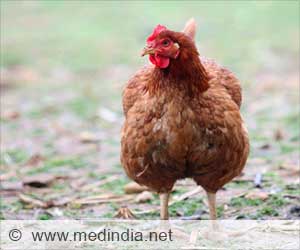UN experts said Wednesday they still have a long way to go before fully understanding how bird flu spreads, but warned that the virus will remain a concern for years to come
UN experts said Wednesday they still have 'a long way to go' before fully understanding how bird flu spreads, but warned that the virus will remain a concern 'for years to come'.
Speaking on the sidelines of an international conference here, officials from the Food and Agriculture Organisation (FAO) and the World Organisation for Animal Health (OIE) said wild bird migrations and the illegal trade in infected animals play a key factor in spreading the highly pathogenic avian influenza virus.'The conference identified the gaps in our knowledge and provided us with better information on the situation,' said Joseph Domenech, FAO's chief veterinary officer.
'But we still have a long way to go before we can fully understand this disease, especially as far as wildlife is concerned,' added Gideon Bruckner of the OIE's scientific department.
One of the problems scientists face is that they still do not know whether the virus can become endemic in wild birds such as ducks and geese and whether these animals can carry the disease without showing any symptoms.
More than 300 experts from over 100 countries met at FAO's headquarters in Rome on Tuesday and Wednesday to discuss the spread of the virus, which since 2003 has led to the culling of 200 million domestic fowl and the death of at least 127 people worldwide.
Experts said that while they now have a better knowledge of the spread of the disease in Europe and the Middle East, serious concerns remain about the situation in Africa and Asia.
Advertisement
'The crisis is not going to go away in six months' time. We will need to keep our guard up for years to come,' Lubroth added.
Advertisement
The Americas remain bird-flu free to date while there is no indication yet that the virus has mutated in a way as to spark human-to-human infections, experts said.
Source: IANS News





